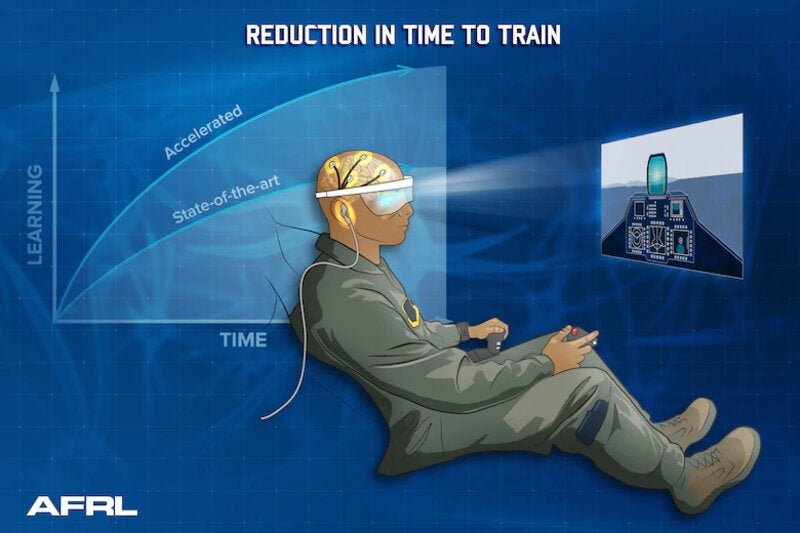
A team from the US Air Force Research Laboratory (AFRL) is working on a new research effort called the Individualized Neural Learning System (iNeuraLS).
Led by the AFRL 711th Human Performance Wing (HPW), the project aims to develop a capability for airmen that will help them with fast knowledge and skill acquiring abilities via direct brain interfaces, using neurotechnologies.
iNeuraLS is a new augmented learning platform that will enable fast learning by closed-loop modulation of cognitive states during skill acquisition.
Under the 2030 Science and Technology Strategy, the project received funding as part of the Seedlings for Disruptive Capabilities Program (SDCP).
AFRL Cognitive Neuroscience senior technical lead Dr Gaurav Sharma said: “Neurotechnology is a major focus area for the 711 HPW with a huge potential for enhancing capabilities for the air force as we move forward.
“Over the last decade, we have made tremendous progress in our understanding of brain function related to airman performance and have also developed and tested a toolkit of neuromodulation technologies to drive the brain to an optimal performance state.

US Tariffs are shifting - will you react or anticipate?
Don’t let policy changes catch you off guard. Stay proactive with real-time data and expert analysis.
By GlobalData“With iNeuraLS, we are taking it to the next level by creating an immersive closed-loop system that will be optimised to each user’s learning potential.”
As part of the research, the brains’ neural signals will be used to develop algorithms, determining the optimal state, under which individuals can receive information.
Using this information, the team will identify effective ways to enhance the subjects’ ability to intake and process data, including non-invasive neuromodulation and brain stimulation.
To gather data on brain activity, the team will develop a hybrid brain-machine interface using two technologies, including electroencephalography (EEG) and magnetoencephalography (MEG).
The three-year effort is expected to prove beneficial in training air force pilots quicker.
The collaborative effort involves multiple AFRL directorates such as the Materials and Manufacturing Directorate and the Munitions Directorate.
Other partners across the industry include Microsoft, Sonera Magnetics, MIT Lincoln Laboratory and Teledyne Technologies.



